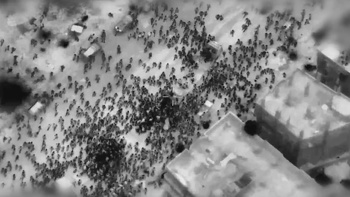
A legal bid to have the practice of psychiatry declared “quackery” has failed at the first hurdle, with a judge labelling the arguments “unintelligible”.
Applicant John Carter has also failed to have the court make a ruling banning Parliament from making quackery lawful.
Carter, described by Justice Peter Churchman as a “prolific litigant”, took the case against the former Capital and Coast and Hutt Valley district health boards, as well as the Attorney-General.
The claim was sparked by the 2010 death of Carter’s son, later ruled a suicide. Carter has previously litigated multiple matters relating to his son’s death.
At the time of his death, Carter’s son was subject to an inpatient order under the Mental Health (Compulsory Assessment and Treatment) Act 1992, and had been receiving psychiatric treatment since 2006.
“[Carter] alleges that [his son’s] medical treatments were not administered with respect, and that [his son] was prescribed ‘poisonous and experimental suicide inducing drugs which were never going to help’,” said Justice Churchman in a recently-released decision from the High Court at Wellington.
“He alleges that psychiatry is ‘the practice of medical fraud for financial gain’, and that all psychiatric care that [his son] received during his lifetime was illegal and/or breached [his] rights.”
Carter’s claim seeks four outcomes: that the High Court declare psychiatry “quackery”, a declaration that Parliament may not make quackery lawful, a declaration his son’s treatment breached his common law rights, and an order for the Attorney-General to pay $411 and damages for each day his son was “unlawfully” subjected to the treatment.
Quackery is defined as the behaviour of a person who pretends to have medical knowledge.
Carter filed his statement of claim in April.
Counsel for the DHBs applied for the case to be struck out, saying it was “frivolous, vexatious, an abuse of process, and out of time” and that it had no reasonably arguable cause of action.
They also said there was no legal basis to allow the declarations and order Carter wanted.
Counsel for the Attorney-General also made similar submissions, adding “Mr Carter’s conduct shows a casual and frivolous approach to the court’s processes.”
They said the statement of claim disclosed no matter that the court had jurisdiction to deal with.
“Whether the practice of psychiatry is quackery is not a matter that the court can resolve.
“He submits that the courts do not have the power to make declarations which purport to constrain or erode parliamentary sovereignty,” Justice Churchman said.
Carter’s submissions argued the Crown wanted to strike out his claim out of “fear” and because “it doesn’t want [it] to be aired that psychiatry is quackery”.
“As a basis for concluding that psychiatry is illegal, immoral, or unsupported by scientific evidence, Mr Carter cites a number of passages from the Bible,” Justice Churchman said.
Carter took particular issue with his son’s treatment where it related to a common side effect of antipsychotic medication called akathisia, which could cause restlessness.
Justice Churchman said Carter was “a man of firm views” and had taken a large number of cases in a variety of courts over the past 30 years.
“It would not be an exaggeration to say that Mr Carter has become fixated about certain issues.”
It was clear Carter’s statement of claim was an abuse of process and was defective and unintelligible, he said.
“There is no legal yardstick to which the court may refer in consideration of whether, in fact, psychiatry is ‘quackery’. In other words, the court does not have the ability to enter into such consideration, because that would require an assessment of whether an accepted body of scientific medical practise is valid. The court is not equipped to consider that issue.”
The court also did not have the power to declare what Parliament could or could not make lawful, he said.
“Parliament is sovereign. The role of the courts is to apply the law as written by Parliament, having within contemplation Parliament’s intent.”
Justice Churchman agreed to strike out the claim.
Take your Radio, Podcasts and Music with you









